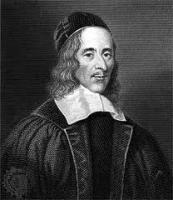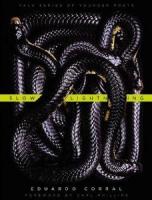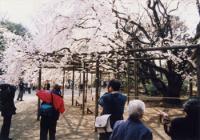April 3, 2012
Edited by David Sanders
Specimen Days
April 3, 2012
1485 – Lieven van der Maude [Ammonius], South Netherland poet, is born.
1525 – Giovanni Rucellai, Italian poet (Le Api), dies at 49.
1593 – George Herbert, English metaphysical poet (5 Mystical Songs), is born.
1849 – Juliusz Slowacki, Pol poet (Father of the Plague-Patient), dies at 39.
1871 – Jose Juan Tablada, Mexican poet (El Florilegio), is born.
1945 – Joseph Weinheber, Austria poet/writer (Vienna Verbatim), dies at 43.
 My thoughts are all a case of knives,
My thoughts are all a case of knives,
Wounding my heart
With scatter’d smart,
As wat’ring pots give flowers their lives.
Nothing their fury can control,
While they do wound and prick my soul.
—from “Affliction (IV)” by George Herbert (1593 –1633)
Poetry In The News
Poetry In Motion Is Coming Back To Brighten Your Commute!
Score one for the arts—Poetry in Motion is coming back! Four years after the popular MTA program was discontinued and two years after its odd replacement, “Train of Thought,” was nixed as well, the MTA today is announcing that the original is coming back! It won’t be exactly the same as the old program, but we don’t care. This is good news. Read more at the Gothamist.
Jay Macpherson: 1931-2012
One of Canada’s finest – and arguably most underappreciated – poets has died. Jay Macpherson, a professor at the University of Toronto who won the Governor General’s Literary Award for her 1957 collection, The Boatman, died suddenly last Wednesday. A short obituary in the Toronto Star makes reference to a “long-undetected illness,” but a post by James Reaney on the London Free Press blog indicates that Macpherson had recently been diagnosed with cancer. Macpherson was one of the poets included in the recent U.K. anthology Modern Canadian Poets: An Anthology of Poems in English, edited by Evan Jones and Todd Swift. Read more at Quill and Quire.
Chasing Ghosts of Poets Past
 On 12th Street between Avenue A and First Avenue in the East Village, there is an empty lot, a dusty, fenced-in patch next to a school playground. On a recent sunny afternoon, some children were tossing around a baseball there, beneath two wildly flowering cherry blossom trees, oblivious to the history around them. Though the precise location is lost, this was apparently where Lorenzo Da Ponte, the Venetian opera writer, was once buried. Read more at the New York Times.
On 12th Street between Avenue A and First Avenue in the East Village, there is an empty lot, a dusty, fenced-in patch next to a school playground. On a recent sunny afternoon, some children were tossing around a baseball there, beneath two wildly flowering cherry blossom trees, oblivious to the history around them. Though the precise location is lost, this was apparently where Lorenzo Da Ponte, the Venetian opera writer, was once buried. Read more at the New York Times.
World Poetry
Cuban Antiterrorist’s Verses in World Poetry Day in Haiti
Critically acclaimed Italian poet Elio Pagliarani died in Rome earlier this month on March 8th, at age 84. The author of works such as “La Ragazza Carla” and La Ballata di Rudi, Pagliarani was a poet and literary critic best known for his affiliation with the avant-garde Gruppo ’63 movement. His critical approach to both the subject matter and language of his poetry is credited with helping to alter the course of the genre in Italy in the Twentieth Century. Read more at ArtsEditor.
Lavinia Greenlaw Wins Ted Hughes Award 2011 for New Work in Poetry
 Lavinia Greenlaw’s “outstanding” sound work Audio Obscura, which sent listeners on journeys of discovery through Manchester Piccadilly and London St Pancras train stations, has won the Ted Hughes award for new work in poetry. The prize, established by poet laureate Carol Ann Duffy, rewards “the most exciting contribution to poetry” over the last year. A drama documentary by Simon Armitage, an orchestral piece by Christopher Reid set in the first world war, and a sequence of dramatic war poems by Andrew Motion were all in the running for this year’s award. Greenlaw’s work gave its audience headphones and led them through the bustle of London St Pancras and Manchester Piccadilly train stations, listening to individual narratives. It was felt by judges to “fully capture the spirit” of the Ted Hughes award. Read more at the Guardian.
Lavinia Greenlaw’s “outstanding” sound work Audio Obscura, which sent listeners on journeys of discovery through Manchester Piccadilly and London St Pancras train stations, has won the Ted Hughes award for new work in poetry. The prize, established by poet laureate Carol Ann Duffy, rewards “the most exciting contribution to poetry” over the last year. A drama documentary by Simon Armitage, an orchestral piece by Christopher Reid set in the first world war, and a sequence of dramatic war poems by Andrew Motion were all in the running for this year’s award. Greenlaw’s work gave its audience headphones and led them through the bustle of London St Pancras and Manchester Piccadilly train stations, listening to individual narratives. It was felt by judges to “fully capture the spirit” of the Ted Hughes award. Read more at the Guardian.
New Books
The Complete Poems by Philip Larkin
[Hardcover] Farrar, Straus and Giroux, 768 pp., $40.00
For the first time, Larkin’s poems are given a comprehensive commentary. This draws critically upon, and substantially extends, the accumulated scholarship on Larkin, and covers closely relevant historical contexts, persons and places, allusions and echoes, and linguistic usage. Prominence is given to the poet’s comments on his own poems, which often outline the circumstances that gave rise to a poem or state what he was trying to achieve. Larkin often played down his literariness, but his poetry enrichingly alludes to and echoes the writings of many others; Archie Burnett’s commentary establishes him as a more complex and more literary poet than many readers have suspected.
The Radio Tree by Corey Marks
 [Paperback] New Issues Poetry & Prose, 65 pp., $15.00.
[Paperback] New Issues Poetry & Prose, 65 pp., $15.00.
Corey Marks’ delightful and surprising second book The Radio Tree uses such fresh and clarifying metaphoric language that we look “through the near world” as if into “the afterlife of chance.” And what we find there are such lovely and strange inventions made from what’s near at hand an unraveled kite string stretching over a “tornado” of debris or “tentacles of magnetic tape”–that Marks reminds us how poetry comes alive to us by way of glimpses and inklings. –Michael Collier
Exit, Civilian by Idra Novey
[Paperback] University of Georgia Press, 88 pp., $16.95
In her second collection, Idra Novey steps in and out of jails, courthouses, and caves to explore what confinement means in the twenty-first century. From the beeping doors of a prison in New York to cellos playing in a former jail in Chile, she looks at prisons that have opened, closed, and transformed to examine how the stigma of incarceration has altered American families, including her own. Novey writes of the expanding prison complex that was once a field and imagines what’s next for the civilians who enter and exit it each day.
Slow Lightning by Eduardo C. Corral
 [Paperback] Yale University Press, 96 pp., $18.00
[Paperback] Yale University Press, 96 pp., $18.00
Eduardo C. Corral is the 2011 recipient of the Yale Series of Younger Poets award, joining such distinguished previous winners as Adrienne Rich, W. S. Merwin, and John Ashbery. Corral is the first Latino poet to win the competition. Seamlessly braiding English and Spanish, Corral’s poems hurtle across literary and linguistic borders toward a lyricism that slows down experience. He employs a range of forms and phrasing, bringing the vivid particulars of his experiences as a Chicano and gay man to the page. Although Corral’s topics are decidedly sobering, contest judge Carl Phillips observes, “one of the more surprising possibilities offered in these poems is joy.”
Recent Reviews
An Inverted World of Trees and Trembling Sky
by Lisa Wells
Long hailed one of the Pacific NW’s most important poets, alongside the likes of Theodore Roethke, William Stafford, and Richard Hugo (triple swoon,) David Wagoner has been writing poems for nearly 60 years. After the Point of No Return, released by Copper Canyon Press this March, is something like his 19th (or 24th, depending on who’s counting) volume. No doubt, Wagoner knows how to write a poem. Almost all of its 130 pages are flawlessly structured, perfectly paced, sing with syntactic grace, and provide a surprising image or two. Read more at The Rumpus.
Michael Lista, On Poetry: Alien vs. Predator, by Michael Robbins
 Michael Robbins is the rarest kind of poet: one who wakes up famous one morning (wait, I’m still going) before his first book is even out. When his poem “Alien vs. Predator” appeared in The New Yorker in January 2009, it went, well, sort of viral. Music critics Carl Wilson and Sasha Frere-Jones gushed about it on their blogs. The Village Voice ran a three-page interview with Robbins about his 20-line poem. Gothamist recommended him for the Nobel Prize (Freud said there are no jokes). Read more at the National Post.
Michael Robbins is the rarest kind of poet: one who wakes up famous one morning (wait, I’m still going) before his first book is even out. When his poem “Alien vs. Predator” appeared in The New Yorker in January 2009, it went, well, sort of viral. Music critics Carl Wilson and Sasha Frere-Jones gushed about it on their blogs. The Village Voice ran a three-page interview with Robbins about his 20-line poem. Gothamist recommended him for the Nobel Prize (Freud said there are no jokes). Read more at the National Post.
Beauty and Violence
by Jonathan Farmer
Most poets start out in a kind of Eden, one that typically coincides with adolescence. Convinced of the great importance of everything, their own thoughts most of all, they name the world and find it beautiful. But poets eventually grow up, and these days they tend to learn a few lessons along the way—that the most important thing about many of us is the harm our way of living does; that not only is our self-importance suspect, but so is the idea that we have a stable self; and that beauty may be truth but truth is relative. Read more at Slate.
Correspondences
An Interview with Ben Lerner
Ed Sugden
Ben Lerner’s work reads something like a poetic analogue to the uncertainty principle: meaning can never be located locally, without a concurrent loss of overall sense. Conversely, any attempt to create an overarching methodological schema fails because it is in precisely those concentrated nodes of local significance that all meaning resides. The result is a poetry that seems polyphonic, even as the voice empties itself of affect; which implies some absent and greater narrative unity, yet is dependent on that unity never being found. This idiom has developed over three books of poetry (The Lichtenberg Figures, Angle of Yaw, and Mean Free Path), and he has won “Preis der Stadt Münster für internationale Poesie” and been shortlisted for the National Book Award as a result. Read more at Wave Composition.
Emailing Adrienne Rich
By Katy Waldman
In February last year an assignment drifted down to me that I could not believe. I was interning at The Paris Review, fresh out of college, and the Web editor asked me whether I would interview Adrienne Rich, over email, about her new book, Tonight No Poetry Will Serve. The idea of emailing Adrienne Rich didn’t compute. That the mind behind “Twenty-One Love Poems” belonged to a human being was remarkable enough; I imagined the pixels withering before her poetic presence. But I nodded and took the galley copy, because one of the many things I loved about Rich’s lines was their sense of calm, otherworldly purpose. Her work called on you to do the unexpected. Read more at Slate.
Broadsides
AWP Conference – Chicago – 2012
by Jim Cummins
Along with approximately 10,999 other registrants, I attended the recent AWP Conference in Chicago earlier this month. I also attended the first Woodstock, in August, 1969. They were similar events, minus the rock bands and the loudspeaker announcements about bad acid. On the other hand, Chicago had poetry in the elevators; a tape loop of poets reading their own poems played continuously in the elevators throughout the conference. Read more at Best American Poetry.
Petals “perfect beyond belief” Stir Poetic
 by Michael Hoffman
by Michael Hoffman
Two natural facts have had a disproportionate impact on Japanese culture: cherry blossoms are beautiful, and they fall. Cherry blossoms, wrote the scholar-poet and shogunal mandarin Matsudaira Sadanobu (1758-1828), “seem especially suited to the ways of our country, with branches so gentle, flowers so delicate in shape, and hues so simple that the total effect is perfect beyond belief.” Read more at Japan Times.
The Concept Is Interesting
by Stephen Ross
Exophonic literature has been defined as writing in a second language, a language always other than one’s own. As, perhaps most famously, Beckett writing in French. Beyond exophonism? The concept is interesting: to reflect, as though streaming through their own eyes, the words of others in their own windowpanes. A ghostly transparent impression of their correctly digested attitudes, overlaid by your self-analytical face. Read more at Wave Composition.
Drafts & Fragments
Poems Should Be Beautiful
One of the greatest living poets on never beginning a poem knowing how it will end, and the influence of politics.
The Captive Poet Project
 Here at Bluebird, we’re all about taking words to the street. That’s why we have wheels. This is not a taco truck. But you can order a haiku, through the latest incarnation of our literary outreach: The Captive Poet Project.
Here at Bluebird, we’re all about taking words to the street. That’s why we have wheels. This is not a taco truck. But you can order a haiku, through the latest incarnation of our literary outreach: The Captive Poet Project.
Envoi: Editor’s Notes
Technique and Struggle
 Jim Cummins’ piece above on the AWP in Chicago sent me to my copy of Richard Howard’s Alone with America, his big volume of essays on poets of the day (the day being 1969). I started rooting around in it and settled on a passage, which caught my eye, from his article on Anthony Hecht. Howard says this about Hecht, referring to his polished technique: ” . . .we tend to discredit what I should call the neoclassical notion of an artist’s producing no more than what he sets out to make, progressing from the arbitrary toward a previously defined necessity, from a certain disorder to a certain order. Further and deeper—for it is here that Hecht most concerns us—we have learned to distrust a presentment of order and necessity (even when such a presentment is critically, is dialectically concerned with the chaotic and the arbitrary) which does not seem to have to struggle against a constant sense of despair and disorder resisting the thing which is coming into being.”
Jim Cummins’ piece above on the AWP in Chicago sent me to my copy of Richard Howard’s Alone with America, his big volume of essays on poets of the day (the day being 1969). I started rooting around in it and settled on a passage, which caught my eye, from his article on Anthony Hecht. Howard says this about Hecht, referring to his polished technique: ” . . .we tend to discredit what I should call the neoclassical notion of an artist’s producing no more than what he sets out to make, progressing from the arbitrary toward a previously defined necessity, from a certain disorder to a certain order. Further and deeper—for it is here that Hecht most concerns us—we have learned to distrust a presentment of order and necessity (even when such a presentment is critically, is dialectically concerned with the chaotic and the arbitrary) which does not seem to have to struggle against a constant sense of despair and disorder resisting the thing which is coming into being.”
This, I think, is an astute and interesting way to think about Hecht’s poetry, especially that which had been published by 1969. But it is also worth thinking about in terms of any sort of poetry when we consider that part of the art, regardless of the poet, is artifice. What’s also interesting, and this is a small point, is that in the last line quoted above, Howard chooses to italicize the word “struggle” where I would have emphasized the word “seem.” It could be that what is seen by some as a strength (the ability to make the struggle look effortless) is viewed by others, who want “not accomplishment but exploration,” as a shortcoming, a flaw. But it would be hard not to see the instances in Hecht’s work when just that sort of accomplishment and seeming ease kept the reality of the terror, the despair, and the disorder at bay.
—David Sanders